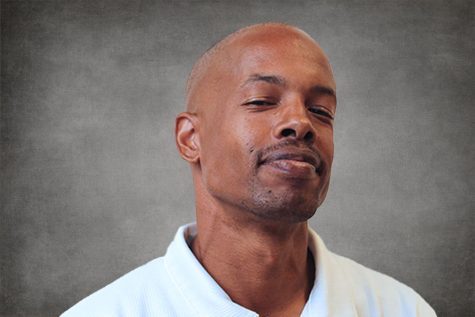Female artists strive to redefine global art form
Mar 21, 2018
In the late 1970s, hip-hop music emerged from the projects of New York City to give voice to the voiceless and eloquently express the day-to-day experiences of people struggling to break the chains of oppression.
With a mainline connection to the inner-city streets and the ability to offer an auditory glimpse into the hearts of the people who inhabit them, the art form quickly became a tool of a desperate populous yearning for change.
Even while being excoriated by a bevy of detractors, hip-hop music has influenced movements ranging from Los Angeles gang truces to nationwide voter registration drives.
Fifty years after its creation, hip-hop, now widely accepted as a culture, has earned global appeal, with its influence reaching nearly every continent.
Last year, that inner-city music born in project parks, surpassed rock music as the most popular genre in music in the U.S. according to the global information, data, and measurement company Nielsen Holdings PLC.
However incremental hip-hop’s influence toward change has been here in the states, in 2010, on the streets of Tunisia during the Arab Spring, the music would have an impact on a scale its New York pioneers could have never imagined.
The music fueled the Arab Spring protests, beginning in the streets of Tunisia and moving into Egypt, then permeating across the Middle East and into North Africa.
One artist, El Général, whose song “Rais Lebled” (which translates to president of the country) spoke to the exacerbated feelings of a voiceless community.
His song became the unofficial anthem of the protests.
Since then, this tool labeled hip-hop has been wielded by many other groups whose opinions are largely marginalized or suppressed.
Now, Muslim women boldly express their feelings through hip-hop while simultaneously dispelling many of the misconceptions that accompany life when viewed from their perspective.
Hailing from Afghanistan and rapping in her language of Dari, Paradise Sorouri has emerged as the first female rapper from the previously Taliban-controlled nation.
Sorouri’s lyrics excoriate the gender inequality in her homeland, but for the 29-year-old, speaking up has come at a cost.
The rapper was forced to flee her country, with nearly one million other people, to Germany. Sorouri made the decision to leave after being assaulted by men because she chose to go outside wearing a baseball hat instead of a hijab.
In her lyrics, she asks women to “Get up and take what’s yours from the world” and to “Be my saving grace. Be yourself. Be a woman.”
Even in this age of “Garage Band” producers, it’s inconceivable that music with the clarity of Sorouri’s was produced in a land that was the recent location of a full scale war.
The performer was also recognized by the United Nations in 2013 for promoting human rights.
Sadly, since migrating to Germany, Sorouri’s musical catalogue is without the tough, in-your-face hip-hop lyrics that earned her so much attention on the streets of Afghanistan.
Now, the rapper, with her husband and band mate, has softened the message in her music and opted to produce music that fits better in the pop genre.
The pair still tours and in 2017 their band, which now performs under the name 1:43 band, released its first new track in nearly three years.
Since then, Muslim women have continued to use music as a way to have their individual perspectives recognized.
Arguably the most popular female rapper who focuses on the plight of Muslim women worldwide is Mona Haydar. In 2017, Billboard critics named Haydar’s debut song, “Hijabi (Wrap My Hijab),” one of the most influential protest songs of the year.
The Syrian-American Muslim poet released the song to highlight the stereotypes that accompany wearing the hijab.
In her lyrics, like the MCs that came before her, she paints vivid pictures of what it’s like to walk in the shoes of a Muslim woman.
“What that hair look like, bet that hair looks nice. Don’t it make you sweat, ain’t it wrapped to tight,” Haydar raps in “Hijabi.” “Not your exotic vacation, I’m bored with your fascination. You gotta PayPal PayPal if you want that education.”
Unlike Sorouri, who blessed the mic in her native tongue, Haydar raps in English with an East Coast musical feel.
The beat to “Hijabi” is easy to ride to and the lyrics are interesting to follow.
With the stigma that most women who rap have to battle against, it is amazing that women from backgrounds that are typically seen as oppressed can make such a powerful impact using only their voices.
Her newest song, “Dogs,” expresses her views on relationships in her community. Although the song lacks the wide-ranging societal punch brought by its predecessor, the insight she offers makes the song more than worth a listen.
Lyrically, the rapper touches on topics that have never been addressed despite the typical relationship driven lyrics many songs gravitate toward.
“Sheikhs on the DL, Sheikhs in my DM, Begging me to shake it on my cam in the p.m.,” she raps “Dogs.”
If the trend continues, these women, and others who feel their perspectives have been willfully ignored, will pick up the mic and shed light on the problems that afflict them.
And hip-hop will be better for it.


